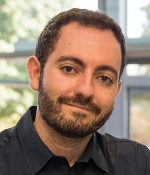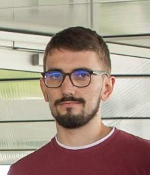Tutorial 01
Battling the Android scheduling system: how to reliably schedule background measurements in Android
Abstract
In indoor positioning, the capability of smartphones to systematically collect background measurements is essential (e.g. RSS). They serve to provide continuous indoor positioning (e.g. wayfinding) or (automatically) build or maintain radio maps. Unfortunately, with every new Android version the restrictions for developers to frequently schedule background sensing tasks are tightened. In this tutorial, we overview the different Android task scheduling mechanisms, their restrictions, pros and cons, and the impact of different Android versions and manufacturer-specific variants. Subsequently, we formulate advice and code snippets for developers to integrate reliable background scheduling in their applications, depending on the application scenario and required sensing sampling rate. Finally, we present a software library for flexible, reliable task scheduling, based on descriptive task execution graphs and abstracting from Android’s low-level mechanisms. This tutorial is held in the context of the H2020 Marie Sklodowska-Curie project A-WEAR (http://a-wear.eu/) and the Spanish RETOS 2018 project SyMptOMS (http://geotec.uji.es/projects/symptoms/).
Keywords
Task scheduling, background, Android
Tutors

Alberto González-Pérez received his master degree in intelligent systems in 2018 and his bachelor degree in computer science in 2017 both from the Universitat Jaume I (UJI), Spain. He is currently working towards the Ph.D. degree at the Geospatial Technologies Research Group (GEOTEC), affiliated to the Institute of New Imaging Technologies (INIT) at UJI, Spain. His research work focuses on mobile computing and systems, distributed systems architectures and IoT. Contact him at alberto.gonzalez@uji.es.

Miguel Matey-Sanz received the master degree in intelligent systems and the bachelor degree in computer science in 2020 and 2019 respectively, at the Universitat Jaume I (UJI), Spain. He is currently working towards the Ph.D. degree at the Geospatial Technologies Research Group at UJI, Spain. His research work focuses on mobile computing, cloud computing and machine learning. Contact him at matey@uji.es.

Carlos Granell received his bachelor and Ph.D. degrees from the Universitat Jaume I of Castellón, Spain, and is currently an associate professor at the Geospatial Technologies Research Group and the Institute of New Imaging Technologies (INIT) at UJI, Spain. His work focuses on multi-disciplinary applications of geographical information science, especially to mobile health and mental health fields. Contact him at carlos.granell@uji.es.

Sven Casteleyn received his bachelor, master and Ph.D. degree from the Vrije Universiteit Brussel, Belgium, and is currently an associate professor at the Universitat Jaume I (UJI), and member of the Geospatial Technologies Research Group (GEOTEC) and the Institute of New Imaging Technologies (INIT) at UJI, Spain. His work focuses on Web and mobile systems, geographical information science and technology, and their application fields. Contact him at sven.casteleyn@uji.es.